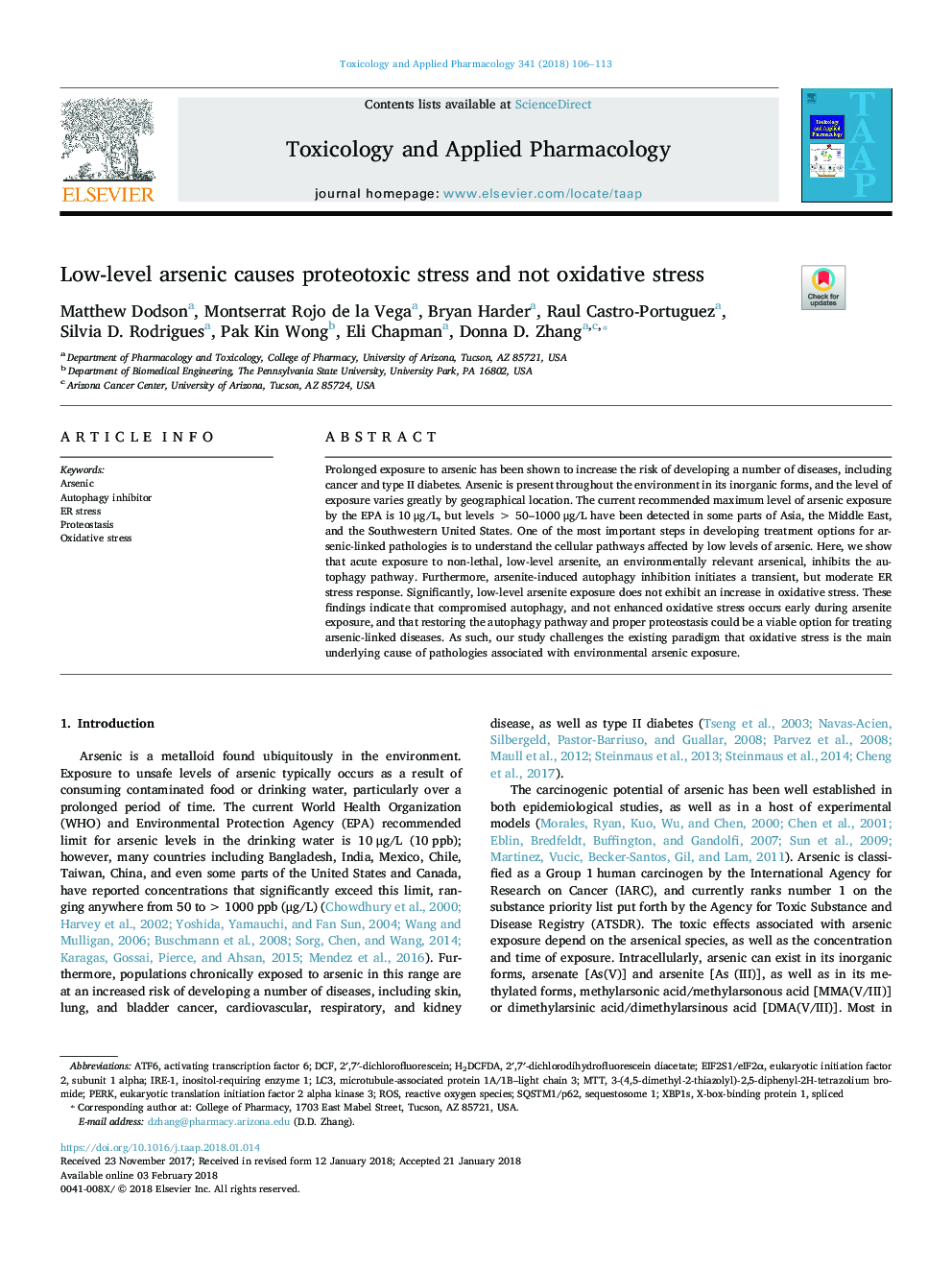| Article ID | Journal | Published Year | Pages | File Type |
|---|---|---|---|---|
| 8538859 | Toxicology and Applied Pharmacology | 2018 | 8 Pages |
Abstract
Prolonged exposure to arsenic has been shown to increase the risk of developing a number of diseases, including cancer and type II diabetes. Arsenic is present throughout the environment in its inorganic forms, and the level of exposure varies greatly by geographical location. The current recommended maximum level of arsenic exposure by the EPA is 10 μg/L, but levels > 50-1000 μg/L have been detected in some parts of Asia, the Middle East, and the Southwestern United States. One of the most important steps in developing treatment options for arsenic-linked pathologies is to understand the cellular pathways affected by low levels of arsenic. Here, we show that acute exposure to non-lethal, low-level arsenite, an environmentally relevant arsenical, inhibits the autophagy pathway. Furthermore, arsenite-induced autophagy inhibition initiates a transient, but moderate ER stress response. Significantly, low-level arsenite exposure does not exhibit an increase in oxidative stress. These findings indicate that compromised autophagy, and not enhanced oxidative stress occurs early during arsenite exposure, and that restoring the autophagy pathway and proper proteostasis could be a viable option for treating arsenic-linked diseases. As such, our study challenges the existing paradigm that oxidative stress is the main underlying cause of pathologies associated with environmental arsenic exposure.
Keywords
IRE-1Autophagy inhibitorsequestosome 1XBP1SDcfATF6LC32′,7′-dichlorodihydrofluorescein diacetate2′,7′-dichlorofluorescein3-(4,5-dimethyl-2-thiazolyl)-2,5-diphenyl-2H-tetrazolium bromideH2DCFDAMTTROSSQSTM1/p62Arsenicinositol-requiring enzyme 1ER stressOxidative stressactivating transcription factor 6ProteostasisPERKReactive oxygen species
Related Topics
Life Sciences
Environmental Science
Health, Toxicology and Mutagenesis
Authors
Matthew Dodson, Montserrat Rojo de la Vega, Bryan Harder, Raul Castro-Portuguez, Silvia D. Rodrigues, Pak Kin Wong, Eli Chapman, Donna D. Zhang,
